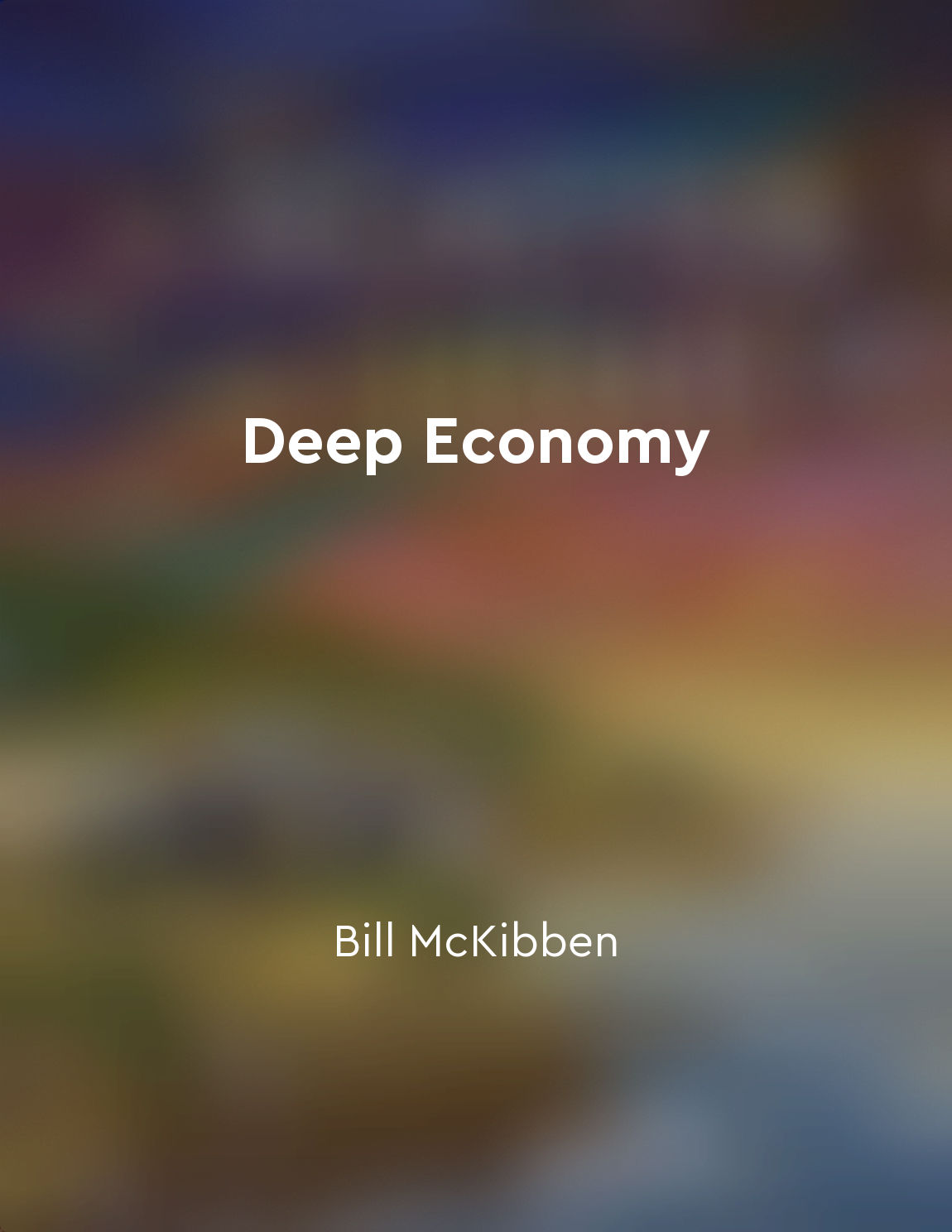Widespread poverty is a symptom of economic inequality from "summary" of Deep Economy by Bill McKibben
In the modern world, it is clear that economic inequality has reached staggering levels. The gap between the rich and poor continues to widen, leading to a host of social and environmental problems. One of the most glaring symptoms of this inequality is widespread poverty. When a small percentage of the population controls the majority of wealth, it naturally follows that many others will struggle to make ends meet. Poverty is not just about lacking material possessions; it is about lacking opportunity and dignity. In a society where wealth is concentrated in the hands of a few, those at the bottom of the economic ladder are often denied access to basic necessities like education, healthcare, and housing. This lack of access perpetuates a cycle of poverty that is difficult to break. Moreover, economic inequality has a ripple effect that impacts all aspects of society. When a large portion of the population is struggling to survive, it creates social unrest and instability. This, in turn, can lead to increased crime rates, political polarization, and even violence. The fabric of society begins to unravel when such stark disparities exist between the haves and the have-nots. In addition, widespread poverty is not just a moral issue; it is also an environmental one. When people are forced to live in poverty, they are more likely to engage in harmful practices like deforestation, overfishing, and pollution. This is not because they are inherently destructive, but because they are simply trying to survive in a system that is stacked against them. As such, economic inequality not only harms people, but it also harms the planet.- Addressing widespread poverty requires us to tackle the root cause: economic inequality. We must work towards creating a more equitable society where everyone has access to the resources and opportunities they need to thrive. Only then can we hope to build a more just and sustainable world for all.


